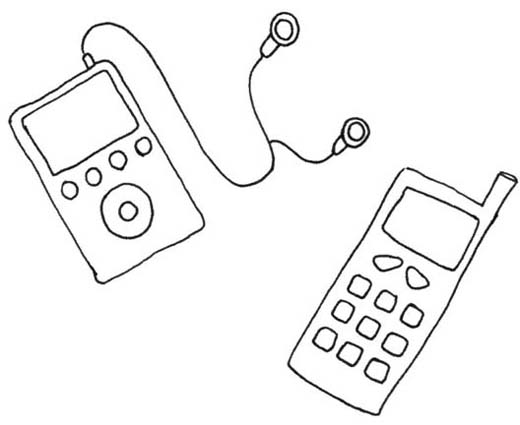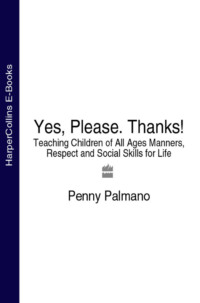
Полная версия
Yes, Please. Whatever!: How to get the best out of your teenagers
Their teens’ behaviour drives parents to distraction and they resort to shouting, ordering, lecturing and saying such things as, what a disappointment they are, how bad or selfish they are, and asking what they did to deserve them.

‘Stay calm!’
RESULT
Shouting at a teenager will produce one result: being shouted back at. Ordering will result in arguments, slamming doors, complete defiance and walking out. These parents are heading for a complete breakdown of communication with their adolescent. And constantly telling anyone – child, teen or adult – how bad they are will usually end up a self-fulfilling prophecy.
The Controlling Parents
These are parents who never let their teens take control of any part of their lives. They resist letting them take any responsibility or suffering any consequences for their actions.
RESULT
These teens grow up unable to make decisions or lead totally independent lives from their parents. If they are not allowed to learn that there are consequences for certain actions they will be incapable of accepting responsibility for their behaviour, creating complete nightmare adults.
The Abandoning Parents
When teens start to push away from their parents, these parents are more than happy to let them go, believing that their parenting days are over. These teenagers are left floundering with no support or guidance. They can see who they want, when they want and come and go with little to no supervision.

‘Now, darling, when you’re out tonight, I don’t want you to smoke or drink.’
RESULT
Hands-off parenting can have devastating results. It doubles the risk of teens smoking, taking drugs and drinking. The lack of loving, caring, supportive parents (or parent) can lead to violence, depression, anxieties and even mental health problems.
The Over-indulgent Parents
These parents did not put enough boundaries in place when their teenagers were children and gave them everything they wanted except positive attention and discipline. They run around after them and think their only needs are chauffeuring and money, which they satisfy generously.
RESULT
Teenagers are very disrespectful of their parents in the way they treat them and talk to them. These adolescents need proper communication with their parents instead of an open cheque book.
The Respectful Parents
These parents respect their teens by listening, setting boundaries, compromising, trusting, supporting and encouraging. These adolescents are given responsibility but are also taught that there are consequences to their actions.
RESULT
Teens who have a close bond with both or one parent and feel trusted, loved and supported, will usually have excellent relationships with their parents. (This fact has actually been proven by research into teenage behaviour.) These children will be able to experiment with their new independence and will develop and flourish within this supportive framework.
There are a few basics that every parent of a teenager should remember:
Keep calm. If necessary, take several deep breaths before answering your teen’s requests. Above all, avoid shouting.
Don’t be drawn into arguments, learn to bite your lip and walk away rather than have to get the last word in.
Compromise and negotiate where possible to avoid using the word, ‘No’; when you have to say it, mean it, and don’t be bullied into changing your mind.
Always try and use example to highlight issues rather than telling them outright.
Avoid sarcasm.
Keep a sense of humour, laughter is very de-stressing.
Try and rephrase questions, such as, ‘Have you done your homework yet?’ to the less controlling, ‘How’s the homework coming on?’When the going gets tough: sit down with a glass of wine and remember how gorgeous they were at 5!
Give them responsibility over their own behaviour wherever possible.
Tell them you trust them to do the right thing.
Try and be enthusiastic and positive about their friends, opinions and hopes.
Avoid saying in any form, ‘I told you so.’ It’s smug and unnecessary; after all, you should know better, you are the parent.
Remember they still need your physical affection, just never show it in front of their friends.
Try and empathize with what’s going on in their head.
Try and avoid constantly arguing with your partner in front of your children.
Do not burden them with all your problems.
Keep a supply of well-chilled wine in the fridge.
But above all, don’t be scared to parent your teenager, they need you now more than ever.
What teenagers really need
What teenagers really need is love, respect, trust, support, understanding, encouragement and responsibility, and not the TV, computer, DVD, iPod, wardrobe full of designer clothes and unlimited allowance as they would lead you to believe.
The best way to help support your children through adolescence is to be involved in what’s happening in their lives and talk to them on a daily basis. Even as teenagers your children need physical affection from you and they will still learn from example, so make sure you’re always setting a good one.
Now that your teenagers are leading more independent lives you are less likely to be with them to demonstrate how they should behave. If you simply try and tell them a

These are what they think they need
list of dos and don’ts they will see you as being too controlling and probably ignore your advice.
The most successful way to convey your opinions and expectations of their behaviour is by introducing different subjects into conversations. The car or dinner table are best for keeping their undivided attention.
Use examples of other teenagers’ behaviour, or use something you’ve read or experienced, or simply put dilemmas to them to see what their reaction would be. For instance, ‘I was on the train the other day and there were four teenagers sitting together, swearing loudly, eating hamburgers and chips that stank the carriage out, and then they left their rubbish on their seat when they left. They were an absolute disgrace, everyone in the carriage was disgusted with them.’ ‘How do you know we don’t behave like that on the train?’ ‘I know you know how to behave and I don’t believe that you would let yourselves or me down like that. I have every faith in you to do the right thing.’
By using examples to get your point across, your children learn how you feel about issues and how you would expect them to react or behave in similar circumstances. It also offers them the opportunity to ask hypothetical questions.
For example, ‘You’ll never believe this, I read in the paper the other day that a sixteen year old had slept with this boy and lied she was on the pill, as she hoped if she got pregnant he would become her regular boyfriend. How sad is that?’ Daughters will usually be prompted to ask, ‘What would you say if I said I was pregnant?’ ‘Well, first darling, I would hope that you would wait until you are a bit older than sixteen and definitely in a long-term relationship, then do the sensible thing, use contraception. But what a shame that poor girl was so naive to think that getting pregnant or having sex with someone is going to make him like her more. Boys will nearly always have sex with girls if it’s on offer, but when they know a girl is that easy they seldom want her as a girlfriend.’ ‘But if the contraception didn’t work and I was pregnant, would you throw me out?’
‘There is nothing you could do that would make me throw you out, but I obviously wouldn’t be delighted for your sake. It would restrict your future options so much, but if it happened we would work it out. You know you can always talk to me about anything, especially things that worry you.
Obviously the way you conduct your life and treat people will have just as big an impact on your teenager’s behaviour as what you say.
And they need all the following probably more now than at any other time during their lives so far:
Love and attention
Respect
Support
Communication
Конец ознакомительного фрагмента.
Текст предоставлен ООО «ЛитРес».
Прочитайте эту книгу целиком, купив полную легальную версию на ЛитРес.
Безопасно оплатить книгу можно банковской картой Visa, MasterCard, Maestro, со счета мобильного телефона, с платежного терминала, в салоне МТС или Связной, через PayPal, WebMoney, Яндекс.Деньги, QIWI Кошелек, бонусными картами или другим удобным Вам способом.



